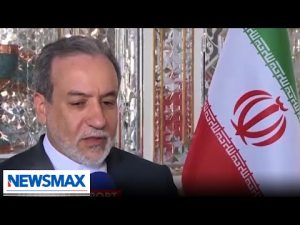In a surprising turn of events, the Ninth Circuit Court of Appeals has handed a victory to former President Donald Trump, underscoring once again how the unexpected can often become the reality. For those not in the loop, the Ninth Circuit is typically known for its liberal bent, a place many would imagine having posters of social justice adorning its walls. Yet here we are, witnessing this body acknowledging that, yes, the President does indeed have the authority to deploy the National Guard when things get a little out of control.
How did this come about, you ask? According to the unanimous panel of judges, U.S. Code 10 provides the President with the necessary power to call in reinforcements when regular forces are swamped and unable to enforce U.S. laws effectively. This isn’t some rogue decision; it’s embedded in the legal framework designed to maintain order when chaos looms. This decision, understandably, led to some celebratory self-posting on Trump’s own social platform, where the former President couldn’t resist highlighting this as a win for the country, suggesting state leaders need to step up their game.
While the ruling was clear-cut, not everyone is dazzled by this outcome. Governor Gavin Newsom, perhaps nursing some bruised political ego, fired back, insisting that Trump isn’t a monarch ruling by decree over the military. His argument danced around the fear that deploying the National Guard is merely an authoritarian move disguised as protection. But, given the court’s stance, that argument might play well at rallies but carries less weight in the legal arena.
Interestingly, public opinion, as always, presents a blend of agreement and discontent. A recent poll highlighted how opinions are split right down the middle. About half of the people seem to support the National Guard’s intervention, while the other half probably imagines themselves shaking signs that say “down with military intervention.” Yet another poll places Trump slightly ahead of Newsom in favorability, perhaps a sign that the Governor might want to spend a bit more time focusing on governance and less on Twitter sparring.
And so, as the political theater continues, one has to wonder about the true implications of such decisions. Will cities like Chicago, Seattle, and Portland find themselves with new visitors in military garb, should things get dicey again? For all the hand-wringing and back-and-forth, one thing remains certain: Trump’s approach to governance—and to those locked in ideological battles with him—will always bring about dramatic headlines and impassioned debates. For those watching on the sidelines, it might not be a straightforward saga, but it sure is an entertaining one.







